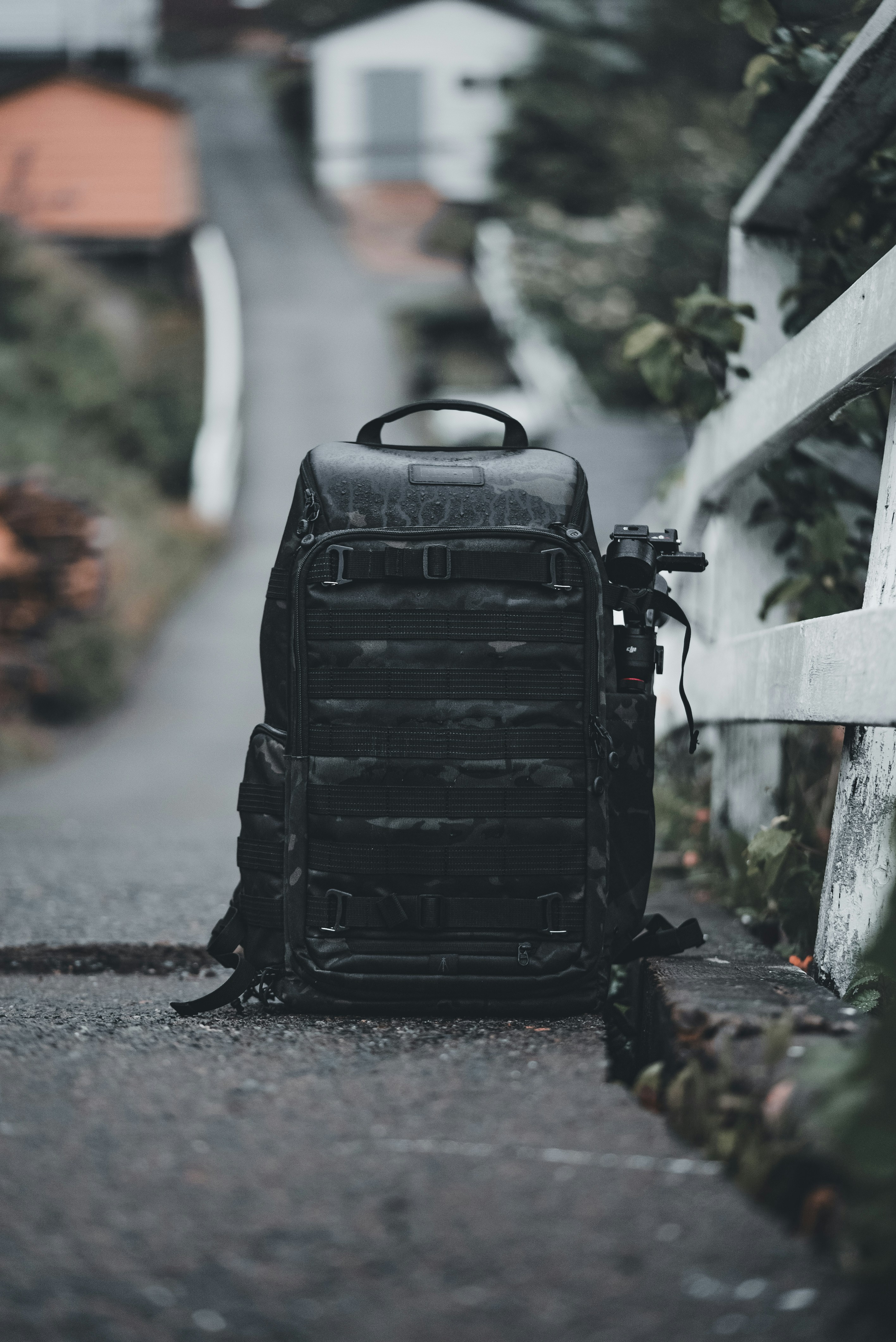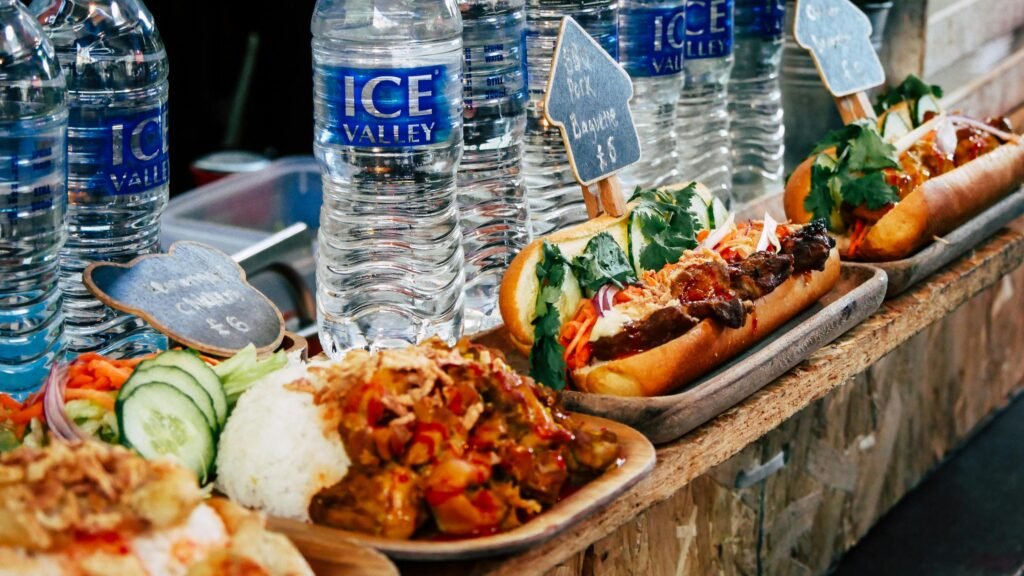Introduction to Backpacking in New Zealand
Backpacking in New Zealand offers an unparalleled opportunity to explore the breathtaking landscapes, diverse activities, and rich culture that this unique country has to offer. Nestled in the southwestern Pacific Ocean, New Zealand is known for its stunning natural beauty, which ranges from majestic mountains and pristine beaches to lush rainforests and expansive lakes. This variety of scenery provides endless possibilities for outdoor adventures, making it a premier destination for backpackers seeking to connect with nature.

One of the defining features of backpacking in New Zealand is the vast array of activities available for travelers. From trekking the iconic Tongariro Alpine Crossing to visiting the geothermal wonders of Rotorua, the country offers something for every interest. Thrill-seekers can enjoy bungee jumping in Queenstown or skydiving over stunning landscapes, while those seeking more tranquil experiences might prefer kayaking in the Abel Tasman National Park or exploring the beautiful vineyards of Marlborough. Each region presents its own unique character and charm, making it a delight to explore this diverse land.
The vibrant culture of New Zealand adds another layer of intrigue to the backpacking experience. Visitors have the opportunity to engage with the rich heritage of the Māori people, enjoy local cuisine, and participate in cultural festivals that showcase traditional music and dance. This cultural immersion enriches the journey and allows travelers to gain a deeper appreciation for the country.
Budget travelers will find New Zealand to be particularly accommodating, with various affordable accommodation options such as hostels, campgrounds, and backpacker lodges. Moreover, numerous free or low-cost activities, such as hiking or soaking in natural hot springs, enhance the reputation of New Zealand as a budget-friendly destination. Thorough planning is crucial for maximizing the experience and ensuring that it aligns with budgetary constraints. By carefully considering travel routes, activities, and accommodations, backpackers can fully enjoy the stunning landscapes and vibrant culture that define New Zealand.
Budget Accommodation Options
When embarking on a backpacking adventure in New Zealand, securing budget accommodation is essential for managing expenses while enjoying the stunning landscapes and diverse attractions. There are several affordable lodging choices, each with its own sets of advantages and disadvantages.
Hostels are a popular option among budget travelers, offering a social atmosphere and shared facilities. They often provide dormitory-style rooms, which significantly reduce costs. Many hostels also feature kitchens, allowing guests to prepare their own meals, thus saving further on food expenses. However, the communal living setup may not suit everyone, particularly those seeking more privacy. For travelers aiming to meet fellow adventurers, the hostel experience can be ideal.
Campgrounds present another economical alternative, particularly for travelers with camping gear or campervans. New Zealand is renowned for its breathtaking campsites, many located in national parks or picturesque locales. While camping allows individuals to immerse themselves in nature, it requires equipment and may expose travelers to weather variations. Facilities at campgrounds can also vary widely, so it’s crucial to research specific sites beforehand.

Budget hotels and motels provide a more private alternative, often including basic amenities such as Wi-Fi and en-suite bathrooms. While these options are generally more expensive than hostels, booking in advance can lead to suitable deals or discounts, especially during off-peak times. Lastly, platforms such as Airbnb have gained popularity for unsparing options ranging from shared spaces to entire homes, allowing travelers flexibility and variety. However, prices can fluctuate depending on location and season, making timely research key.
To secure the best deals, utilizing comparison websites and being flexible with travel dates can assist in uncovering the most cost-effective choices. By exploring these diverse budget accommodation options, backpackers can enhance their New Zealand experience without straining their finances.
Transport Options for Budget Travelers
New Zealand offers a variety of transport options for backpackers, catering to different budgets and travel preferences. Among the most cost-effective and accessible choices are buses, trains, and rental cars. Each mode of transport presents its own unique advantages and challenges, making it essential for travelers to consider their specific needs when planning their journeys.
Buses are one of the most popular modes of transport for budget-conscious travelers. Several companies, such as InterCity and NakedBus, operate throughout the country, providing extensive coverage of key destinations. Ticket prices can vary based on the route and time of booking, but generally, early reservations yield more affordable fares. Additionally, many bus services offer flexible schedules, which is beneficial for spontaneous travelers.
Trains, while often pricier than buses, offer a scenic and relaxing way to see the country. Operators like KiwiRail provide remarkable journeys, including the famous TranzAlpine route that showcases the stunning Southern Alps. While ticket prices may be higher, purchasing passes or booking in advance can help reduce costs. For travelers who prioritize scenery and a unique experience, the extra expense may be justified.
For those seeking more independence, renting a car or campervan can be an attractive option. This provides the freedom to explore remote areas at one’s own pace. Although rental costs can accumulate, budget travelers can mitigate expenses by opting for shared rentals or searching for deals. It’s also important to factor in fuel prices and potential campground fees when budgeting for this option.
Public transport in urban areas, such as Auckland and Wellington, can be economical and efficient. City buses, trains, and ferries typically offer affordable fares. Utilizing public transport can significantly enhance the overall travel experience while keeping costs manageable. By understanding these diverse transport options, backpackers can navigate New Zealand more effectively while sticking to their budget.
Eating on a Budget: Food and Dining Tips
When backpacking in New Zealand, managing food expenses is crucial for maximizing your travel budget. One of the most effective ways to eat affordably is to explore local dining options and cultivate some self-catering habits. New Zealand boasts a vibrant food scene, yet with a bit of planning, you can savor tasty meals without overspending.

Start by seeking out local markets and grocery stores. Fresh produce markets, often found in city centers or rural towns, offer seasonal fruits and vegetables at competitive prices. Local grocery chains, such as Countdown and Pak’nSave, provide a diverse selection of ingredients suitable for preparing your meals in hostel kitchens or campsites. Opting for self-catering not only saves money but also ensures that you have complete control over your diet, which can be particularly beneficial for those with dietary restrictions.
Eating out does not have to be a financial burden either. Look for food trucks and small eateries that serve affordable meal options, often showcasing local dishes. For a true taste of New Zealand, try dishes like fish and chips, burgers made from local beef, or a hearty meat pie. Many pubs and cafes also offer budget-friendly meal deals, ensuring that you can experience the local flavor without breaking the bank.
Additionally, consider utilizing cooking facilities at hostels. Purchasing staples such as rice, pasta, and canned goods allows for quick, economical meals. Planning simple dishes can contribute to significant savings, especially when aligning meal preparation with other backpacking activities. Remember to keep an eye out for special discounts and promotions during your stay, as they can often lead to substantial savings on meals.
Cost-Saving Hacks for Attractions and Activities
Traveling through New Zealand offers a myriad of stunning attractions and activities, which can sometimes strain a backpacker’s budget. Fortunately, there are numerous cost-saving hacks that can help travelers enjoy all that this beautiful country has to offer without overspending. One significant strategy is to identify free or low-cost activities, which are abundant throughout New Zealand. For example, many national parks, such as Abel Tasman and Fiordland, offer free entry, allowing visitors to explore breathtaking landscapes and engage in outdoor activities like hiking and kayaking without any admission cost.
Additionally, consider purchasing discount cards such as the “Kiwi Experience” pass or the “DOC” (Department of Conservation) pass. These cards can provide substantial savings on various attractions and can also include perks such as discounts on accommodation and transportation, further stretching your budget. Many towns and cities offer local visitor passes that provide discounted entry to multiple attractions, making them an excellent value for those planning to do a variety of activities.
Traveling during the off-peak season is another effective way to save money on attractions and activities. Prices for accommodations and tours often decrease significantly during these quieter months, allowing backpackers to avoid the crowds while enjoying popular sites. Additionally, booking in advance or keeping an eye out for promotional deals on platforms like GrabOne or Bookme can lead to significant savings on ticket prices for tours and experiences.
Finally, look for local deals and discounts through community boards and social media platforms. Many organizations and tour companies run promotions or last-minute deals that can assist budget-conscious travelers in discovering affordable options. By employing these cost-saving strategies, backpackers can experience a wide range of attractions in New Zealand without damaging their finances.
Planning Your Itinerary on a Budget
When embarking on a backpacking adventure in New Zealand, careful planning of your itinerary is crucial for maximizing both experiences and budget management. The diverse landscape, vibrant cities, and rich culture offer numerous opportunities, but selecting the right destinations and activities can significantly impact your overall costs.
Start by identifying must-see destinations such as the stunning Milford Sound, the geothermal wonders of Rotorua, and the adventure capital, Queenstown. Each of these locations showcases unique aspects of New Zealand’s natural beauty and culture. Research optimal routes that connect these highlights efficiently, allowing you to minimize transport costs. For instance, consider the well-established backpacker bus services or group travel options, which often provide budget-friendly passes that cover multiple regions.
Moreover, carefully evaluate the balance between activities and travel time. Emphasizing free or low-cost experiences—like hiking in national parks or soaking in hot springs—can significantly offset expenses. New Zealand’s Great Walks, such as the Tongariro Alpine Crossing, offer stunning landscapes at no cost beyond transport and food. It is advisable to allocate specific days for these immersive experiences while setting aside additional funds for unique attractions, such as a guided tour or bungee jumping, which are better suited for a well-defined budget.
In terms of lodging, look for hostels or camping sites that cater to budget travelers, as they often provide the opportunity to meet like-minded adventurers while sharing travel expenses. By constructing a flexible itinerary, you can adapt to unforeseen circumstances or budget changes, ensuring an enjoyable experience throughout your backpacking journey in New Zealand. Adhering to these guidelines will facilitate an enriching yet economically mindful trip, allowing you to savor all that New Zealand has to offer.
Safety and Health Tips for Backpackers
Backpacking in New Zealand offers adventurers breathtaking landscapes and unique experiences. However, ensuring your safety and well-being is crucial for a smooth journey. Firstly, familiarize yourself with common safety concerns in the region, such as changing weather conditions and the presence of wildlife. By keeping informed about local weather forecasts, backpackers can plan their travels accordingly and avoid unexpected risks associated with severe weather, such as storms or heavy rain.
Another vital aspect to consider is health. Staying hydrated and ensuring proper nutrition is paramount when exploring New Zealand’s vast terrains. Carrying adequate supplies of water and nutritious snacks can help maintain energy levels throughout your hikes. Additionally, it is advisable to pack a basic first aid kit containing essential medications and supplies, such as band-aids, antiseptics, and insect repellent. Understanding the potential hazards in natural environments, such as rocky terrain or uneven surfaces, will also help in minimizing the risk of injuries.

Moreover, travel insurance is an essential consideration for budget travelers. It provides a safety net for unexpected events such as medical emergencies, trip cancellations, or lost belongings. When selecting travel insurance, ensure it covers a range of activities, as many backpackers engage in adventurous pursuits like bungee jumping and hiking in remote areas. Always read the policy thoroughly to understand the coverage limits and exclusions. Keep a copy of your insurance details accessible during your travels, alongside contacts for local medical facilities.
In summary, backpackers in New Zealand should prioritize their safety and health by staying informed about potential hazards, maintaining proper hydration and nutrition, and investing in comprehensive travel insurance. By following these precautions, you can fully enjoy the wonders New Zealand has to offer while minimizing risks and ensuring a safe journey.
Sustainable Backpacking in New Zealand
As backpacking continues to gain popularity among travelers, the importance of sustainable travel practices becomes increasingly vital, particularly in New Zealand, known for its stunning natural beauty and rich cultural heritage. Sustainable backpacking not only minimizes the environmental impact but also supports local communities and promotes responsible tourism. Incorporating eco-friendly practices into your travel plans is essential to preserving New Zealand’s unique landscapes for future generations.
One effective way to minimize your environmental footprint while traveling is by choosing accommodation that emphasizes sustainability. Opt for eco-hostels and lodges that prioritize renewable energy sources, provide recycling facilities, and engage in water conservation efforts. Additionally, consider camping options where permitted, as this can enhance your connection with nature while adhering to regulations designed to protect ecosystems.
Another important aspect of sustainable backpacking is respecting local wildlife and natural habitats. New Zealand is home to diverse species, many of which are endemic and vulnerable. Always follow guidelines when hiking or exploring nature reserves, such as sticking to marked trails and maintaining a safe distance from wildlife. It is also crucial to dispose of waste properly and avoid introducing non-native species that could disrupt local ecosystems.
Support for local communities can significantly enhance the sustainable travel experience. Engaging with local artisans, dining at community-run eateries, and participating in cultural activities deepen your understanding of New Zealand’s heritage while promoting economic growth in the region. Utilizing public transportation or opting for carpooling services can further contribute to reducing your carbon footprint.
Ultimately, sustainable backpacking in New Zealand is about making conscious choices that align with environmental and cultural preservation. By adopting these practices, travelers can enjoy the breathtaking beauty of this remarkable country while ensuring that their presence contributes positively to the places they visit.
Conclusion: Making the Most of Your Backpacking Adventure
Backpacking through New Zealand can be a transformative experience that allows travelers to embrace the breathtaking landscapes and vibrant culture while maintaining a careful eye on their budget. Throughout this guide, we have explored various strategies, tips, and recommendations aimed at maximizing your journey without overspending. From selecting the right accommodation options, such as hostels and camping grounds, to finding affordable dining alternatives and exploring free attractions, the secret to a rewarding backpacking trip lies in informed decision-making.
One of the most rewarding aspects of backpacking in New Zealand is the opportunity to form connections with fellow travelers and locals. Engaging in community activities or participating in group tours can enhance your experience while keeping expenses manageable. Additionally, utilizing public transportation and embracing a flexible itinerary allows for spontaneous adventures, ensuring you discover hidden gems that may not be found in typical tourist guides.
Embracing the spirit of adventure is essential for any backpacker. Each town, national park, and coastline holds unique experiences that await your exploration. By leveraging budget-friendly travel hacks, choosing economical activities, and being open to unforeseen opportunities, you can create lasting memories without breaking the bank. New Zealand offers a vast playground for outdoor enthusiasts, from hiking the renowned trails, such as the Tongariro Alpine Crossing, to indulging in the stunning fjords and pristine beaches.
Ultimately, the essence of backpacking in New Zealand is about balance: enjoying the freedom of movement while being economical. With careful planning and an adventurous spirit, you can fully embrace New Zealand’s diverse offerings, ensuring a fulfilling journey that aligns with your financial parameters and creates thousands of memories to cherish for years to come.



